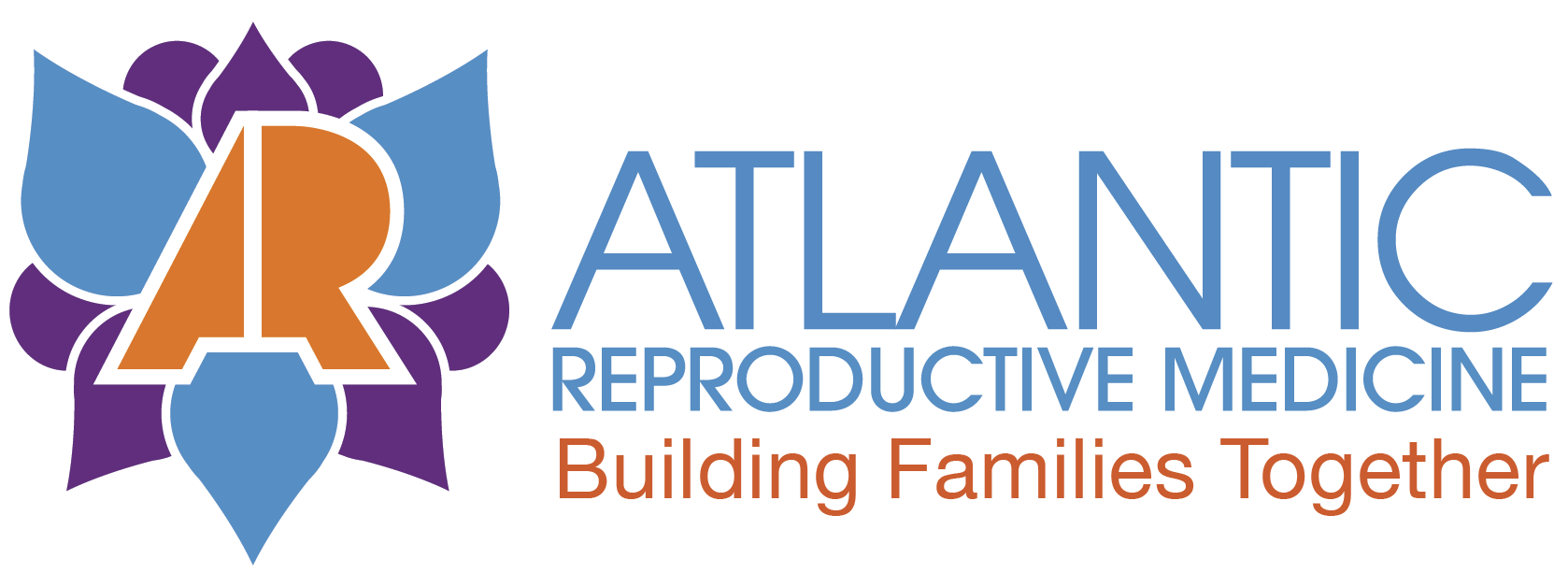In Vitro Fertilization
Many patients throughout the Raleigh area turn to in vitro fertilization to make their dreams of growing their family a reality — and when they need premier doctors capable of handling this procedure with care and experience, they choose our fertility clinic in Raleigh, NC: Atlantic Reproductive Medicine.
What is IVF Treatment & How Does IVF Work?
In vitro fertilization (IVF) is one of the main fertility treatments we utilize at Atlantic Reproductive Medicine. IVF involves the fertilization of eggs with sperm — the process taking place outside the patient’s body.
The IVF pregnancy process typically goes as follows:
- Ovulation Induction – Before IVF can occur, your doctor will prescribe a series of medications designed to help stimulate healthy eggs and, hopefully, make more of them readily available. We want to obtain as many quality eggs as possible at one time.
- Egg Retrieval – When the eggs are ready to be retrieved, our medical staff safely removes them, utilizing a local anesthetic and mild sedative. They’re then stored until insemination takes place.
- Insemination – Using sperm from your partner or a donor, our embryologist inseminates the eggs and places them in an incubator. In many cases, intracytoplasmic sperm injection (ICSI) is used, which calls for the injection of one individual sperm into each oocyte.
- Embryo Transfer – Five days after fertilization, viable blastocysts can be transferred into the uterus. Depending on the patient’s treatment plan, this may be a fresh transfer (immediate placement) or a frozen embryo transfer (FET) at a later date for optimized timing and implantation success.
Watch this video to learn what you need to do before your Nurse Coordination IVF Appointment:
Are there any IVF side effects?
Most of our patients ask about potential side effects. Fortunately for most, IVF is painless. However, some patients report cramps and a general feeling of bloatedness after the IVF procedure.
What are the risks of IVF?
There are some potential risks with IVF, as with most medical procedures. More severe symptoms include:
- Ten-pound weight gain within three to five days
- Faintness
- Severe stomach pains and bloating
- Shortness of breath
- Nausea or vomiting
- Decreased urinary frequency
When is IVF treatment recommended?
IVF treatment is often recommended when patients struggle with:
- Disorders that affect ovulation
- Premature ovarian failure
- Endometriosis
- Uterine fibroids
- Problems with sperm quality or quantity
- Fallopian tube damage or blockages
In vitro fertilization can also be used to preserve your fertility. If you will be undergoing cancer therapy, are concerned about genetic diseases, or are seeking more control over your family planning options, IVF provides those opportunities.
How much does IVF cost?
IVF costs depend on treatment, patient characteristics, and insurance coverage. Finance options are available.
IVF Success Rates
The success rate of IVF depends on a variety of factors which include:
- Cause of infertility
- Lifestyle factors
- Maternal age
- Reproductive history
IVF success rates: SART Calculator
Contact Atlantic Reproductive Medicine today for a consultation with our fertility doctors and to discuss IVF success factors. We’re an experienced provider of IVF infertility treatment to patients in Raleigh, Durham, Cary, Chapel Hill, Wake Forest, and beyond.
